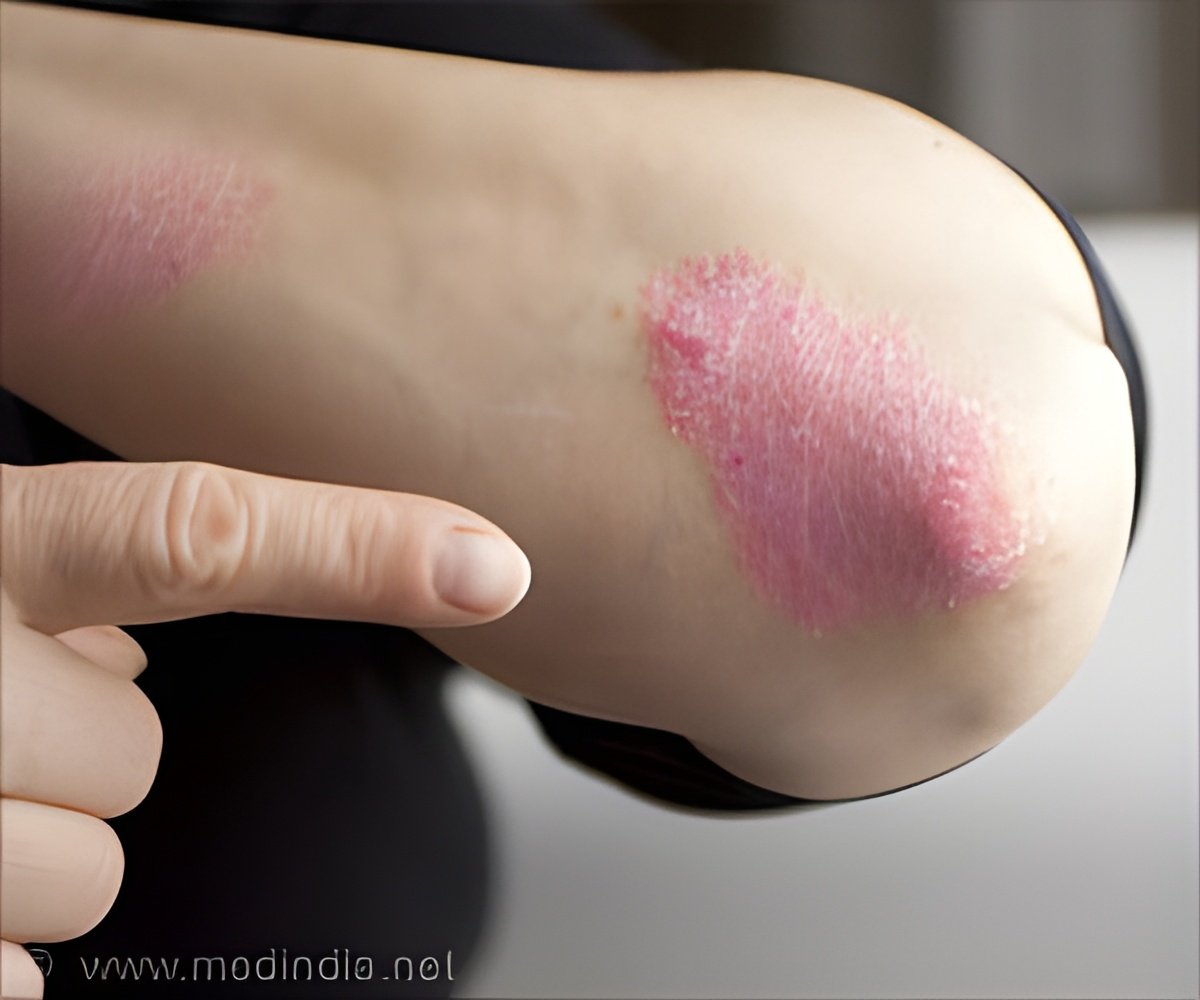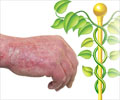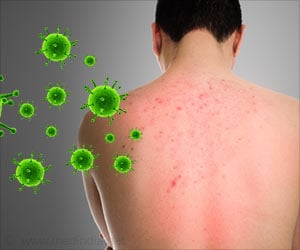The hormone hepcidin, produced in the skin, may be identified as the primary cause of psoriasis.

Skin hepcidin initiates psoriasiform skin inflammation via Fe-driven hyperproliferation and neutrophil recruitment
Go to source). Characterized by red, scaly patches, psoriasis significantly impacts patients’ quality of life and can, in severe cases, become life-threatening.
New research strongly suggests the hormone hepcidin may trigger the onset of the condition. This marks the first time hepcidin has been considered a potential causal factor. In mammals, hepcidin is responsible for regulating iron levels in the body.
‘ Did You Know?
Nearly 30% of psoriasis patients develop psoriatic arthritis, a painful joint condition. #psoriasis #hepcidin #skindisease ’





Nearly 30% of psoriasis patients develop psoriatic arthritis, a painful joint condition. #psoriasis #hepcidin #skindisease ’
Advertisement
Hormone Hepcidin May Lead to Chronic Skin Conditions
The international research team behind this discovery – which includes Dr. Charareh Pourzand from the Department of Life Sciences, the Centre for Therapeutic Innovation, and the Centre for Bioengineering and Biomedical Technologies at the University of Bath in the UK – hopes their finding will lead to the development of new drugs able to block the action of the hormone.Those most likely to benefit from such a treatment are patients with pustular psoriasis (PP) – a particularly severe and treatment-resistant form of the disease that can affect a patient’s nails and joints as well as skin.
Dr Pourzand, who studies ways to mitigate iron imbalances in the skin, said: “Psoriasis is a life-changing dermatological disease.
Patients face a potentially disfiguring and lifelong affliction that profoundly affects their lives, causing them both physical discomfort and emotional distress. The condition can also lead to other serious health conditions.
“A new treatment targeting iron hormone imbalance in the skin offers hope. This innovative approach could significantly enhance the quality of life for millions, restoring their confidence and wellbeing.”
Advertisement
We Need Skin Iron – But Not Too Much
Iron is an essential trace metal, not just for transporting oxygen through the body’s circulatory system but also for maintaining healthy skin: it’s involved in many essential cellular functions, including wound healing, collagen production, and immune function.However, iron overload in the skin can be harmful, amplifying the damaging effects of UV sunlight and causing hyperproliferative chronic diseases (where cells grow and multiply more than normal), including psoriasis.
Studies going back 50 years have reported high iron concentrations in the skin cells of psoriatic patients, however, the cause of this excess and its significance to the condition have remained unclear until now.
The new study is the first to name hepcidin as the likely link. Hepcidin is responsible for controlling how much iron is absorbed from food and later released into the body.
In healthy individuals, it’s produced exclusively in the liver, however, the new study has found that in people with psoriasis, the hormone is also generated in the skin.
Advertisement
Exposure to Hepcidin Triggers Iron Overload
In the new study, mice (which have many genetic and physiological similarities to humans) developed a rodent form of psoriasis after being exposed to high levels of skin-produced hepcidin.This over-abundance of the hormone caused the animals’ skin cells to retain far more iron than was required.
In turn, this excess iron triggered both a hyperproliferation of skin cells and an abnormally high concentration of inflammation-inducing neutrophils (a type of immune system cell) in the topmost layer of skin.
These two outcomes – an overproduction of skin cells and an abundance of neutrophils – are the main features of human psoriasis.
Psoriasis runs in families though experts believe ‘environmental’ factors such as weight, infections, and smoking are also triggers.
A Disease with No Cure
Currently, there is no cure for psoriasis, though treatments that include topical creams, light therapy, and oral drugs can help keep symptoms under control for patients with some forms of the condition.Recent treatments have focused on targeting the immune pathways that contribute to psoriasis development.
Dr Pourzand believes a drug targeting hepcidin has the potential to dramatically improve treatment options for all psoriasis patients.
She said: “Our data strongly suggests hepcidin would be a good target for skin psoriasis treatment. A drug that can control this hormone could be used to treat flare-ups and keep patients in remission to prevent recurrence.
“Also, by adjusting the excess iron in psoriatic skin with customized iron chelators (substances that bind to excess iron in the body and help remove it), we would aim to halt the uncontrolled proliferation of psoriatic skin cells. This hyperproliferation is a major focus of our laboratory’s research on psoriasis therapy, conducted in collaboration with national and international scientists from the Skin@Bath Network, including those from this study.”
Dr. William Tillett, a senior lecturer at the University of Bath and a consultant rheumatologist specializing in the diagnosis and treatment of psoriatic arthritis, said: “This research from Dr. Pourzand and colleagues is an exciting step forward for people living with psoriasis and for the clinical teams treating them.”
“We don’t know exactly why people develop psoriasis but the identification of hepcidin as an important factor in the development of the disease opens doors not only to potential new treatments but also to the possibility of preventing the disease developing in people at high risk. Existing drugs – called biologics – can be highly effective but they are costly and rationed in the UK. Furthermore, these drugs don’t work for everyone and they can stop working after a while, so a new approach to treatment would be very welcome."
He added: “However, developing drugs is notoriously time-consuming and costly, so a new treatment won’t be available immediately and it’s important for patients to manage expectations."
Dr Penelope Pratsou, a consultant dermatologist and spokesperson for the UK charity the British Skin Foundation, said:
“The findings of this study shed new light on the pathophysiology of psoriasis, with hepcidin overabundance in psoriatic skin thought to be another culprit. These results appear promising for patients, though more research is required to further elucidate the role of hepcidin and its potential as a prospective treatment target in psoriasis.”
Reference:
- Skin hepcidin initiates psoriasiform skin inflammation via Fe-driven hyperproliferation and neutrophil recruitment - (https://www.nature.com/articles/s41467-024-50993-8)
Source-Eurekalert









